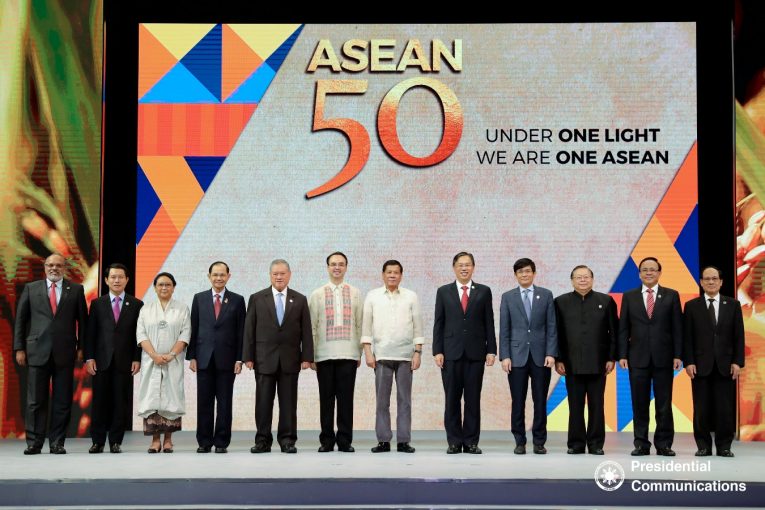
Southeast Asia is in the spotlight when by the end of 2015 the region officially enforces the ASEAN economic community which is one of the three pillars of the ASEAN Community. But for the international community, Southeast Asia is a region which its knowledge is rarely studied, so that a question arises about what is meant by Southeast Asia? Is Southeast Asia merely an area consisting of countries that are rich in culture, rice-eaters, electronic appliances lovers, and prioritizing family values?
The countries in the region belong to a group called The Association of Southeast Asian Nations (ASEAN), a regional group that promotes economic, political and security cooperation among its ten members: Brunei, Cambodia, Indonesia, Laos, Malaysia, Myanmar, Philippines, Singapore, Thailand, and Vietnam. ASEAN countries have population of more than 662 million people and combined GDP of US $ 2.6 trillion based on the number in 2014. Prof. Mochtar Mas’oed during Teaching and Researching Southeast Asia (TRSA) held on 17-19 October 2016 explained the basic concept of ASEAN community. He used Karl Deustch concept that defines Security Community as a group of tightly integrated people, therefore later appear a guarantee that the members of the community will not solve a problem with fight, but will find another solution. In addition, he also explained that the hallmark of the creation of the security community appears when the group has developed a ‘sense of community’, embodied in formal and informal institutions and practices that are strong and widespread, so it can be guaranteed that any change among members can take place peacefully.
Prof. Mochtar Mas’oed also explaining that the Security Community is in line with how ASEAN has a line of problem solving which called “the ASEAN way”. The line is stressed in the sovereign of each country and the principal of non-intervention among countries members. Additionally, ASEAN is strengthen the cooperation among its countries members by arranging the ASEAN Community which consist of 3 main pillars (economic, political security, and socio-cultural). However, ASEAN efforts to continue the integrated process is encountering some obstacles such as the difference of economic and technological capability, the belief/religion difference, as well as regional-based conflicts among ASEAN member countries, for example South China Sea conflict that involve seven countries.
He also explained how to create “region-ness” in Southeast Asia in order the plan of ASEAN Community can work well. There are two approaches that can be used: first is the logical approach of “Problem-solving”. The approach clarifies the problem finding which can push Southeast Asian countries to create “Problem-solving” mechanism together that can fulfill their mutual interests. With many experiences & habits of solving problems together and with the enactment of an institutional framework to solve the problem, we can expect the development of “region-ness” in Southeast Asia. While the second approach, Logic “Community” argues that to create a “political community” there must be a serious effort among leaders and the general public to create “a sense of regional identity.” The discourse of “region” & “region-building” of Southeast Asia must be encouraged, especially among the educated leaders and societies.
There are two messages delivered by Prof. Mochtar to every supporter of “community-building” in Southeast Asia, and also to everyone that agree to the application of the two approaches. Firstly, as an educated society should try to create the “Southeast Asian Identity” by promoting the discourse on the significance meaning of “region building” and its institutionalization. Secondly, there must be an attempt to find the most basic issue for the welfare of the nations in the region (Indonesia). The more accustomed these nations to solve the problems of their lives together, the stronger the impetus for regional cooperation.
—
This article was written by Ilham Fauzi, research fellow at the Center for Southeast Asian Social Studies (CESASS).
